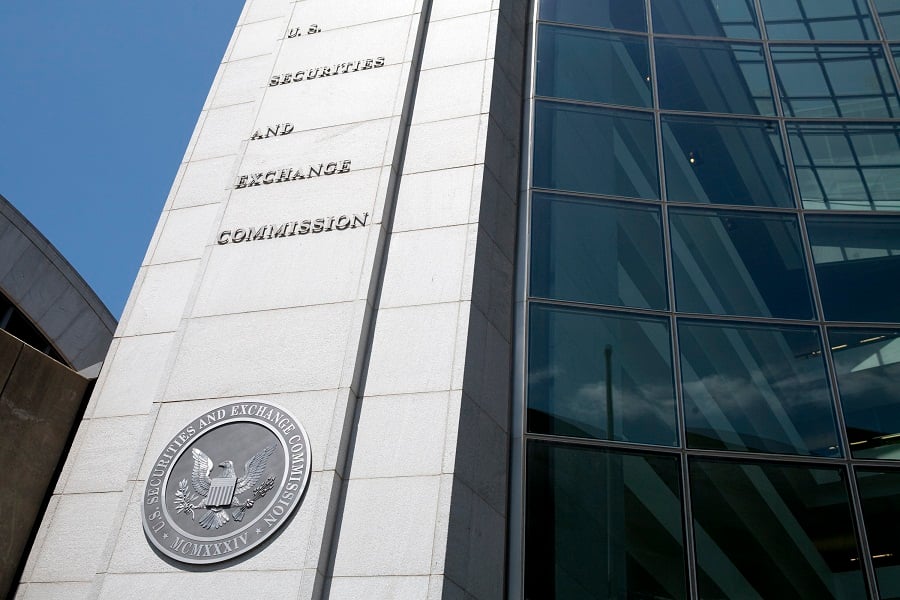It's not just the Department of Labor that's out
to strengthen protections for retirement savers. The SEC's Office of Compliance Inspections and Examinations (OCIE) is taking a deep dive into the practices of retirement advisers, as well.
As was true in 2015, OCIE has placed “examining matters of importance to retail investors, including investors saving for retirement” at the top of its list of exam priorities for this year. In June 2015, OCIE's approach to the retirement marketplace became much more explicit when it launched a multi-year targeted examination program called the Retirement-Targeted Industry Reviews and Examinations Initiative, or ReTIRE for short. The program announcement declared that “OCIE, through the National Examination Program (NEP), will conduct examinations of SEC-registered investment advisers and broker-dealers (collectively, registrants) under the ReTIRE initiative that will focus on certain higher risk areas of registrants' sales, investment and oversight processes, with particular emphasis on select areas where retail investors saving for retirement may be harmed.”
Shortly thereafter, examination letters from OCIE to RIA firms began to arrive. The letters involve some 75 points of inquiry that
dig deep into the matters cited in the ReTIRE launch announcement.
Although neither SEC nor Labor Department leadership have said whether they are sharing information at the examination level, both agencies say they have been comparing notes on the proposed DOL fiduciary rule.
(Related read: SEC fiduciary push gives momentum to third-party exams)
Perhaps they are doing more than just that. Post-Madoff, the SEC has made a concerted effort to eliminate a “silo mentality” in which various SEC departments were unaware of other investigations, both inside and external to the agency. It's certainly possible that the SEC is now intent on achieving broad cooperation with other agencies.
For example, take rollover advice. Until the Government Accountability Office's (GAO) June 2013 report on conflicted advice involving 401(k) account rollovers to IRAs, this issue was not very prominent on radars at the SEC, FINRA, or even DOL. In fact, the DOL's first fiduciary rule proposal in 2010 left out any discussion of fiduciary coverage of rollover advice by brokers. It's now in the current proposal. Later that year, Finra came out with a clarification that rollover advice was subject to its suitability requirements under Rule 2111. In 2014, and in the ensuing two years, OCIE has made retirement accounts an examination priority.
However, the new OCIE exam letter digs deeper than previously into rollover advice and other aspects of conflicts related to retirement accounts. For example, based on the document requests, examiners will review the extent to which the advisory firm explored all five rollover options: keeping the current plan account, transferring assets to a new employer's plan, rolling over to an IRA or taking a lump sum distribution. Documentation of the due diligence process naturally comes into focus, with OCIE requesting written disclosures and scripts used in discussing tax implications, availability of penalty-free withdrawals (presumably for liquidity needs), protection of assets from lawsuits and estate planning.
In asking about conflicts of interest, the SEC is also digging more deeply into costs and compensation — traditional areas of concern for the DOL. OCIE wants data not only of the account-level fees and expenses of an RIA's clients, but other investment options that were available, such as when considering an IRA rollover.
(More from Blaine Aikin: The 3 biggest fiduciary stories of 2015)
Unlike ERISA, which seeks general prohibition on unnecessary services or excessive expenses, the SEC has previously been concerned about disclosure or improper omission of such information, not the actual expenses, unless accumulated through fraud or deceptive practices. This seems to be a major change in direction for the SEC.
These kinds of inquiries should not alarm advisers who adhere to fiduciary best practices and document their decision-making processes. Wealth management and financial planning firms that do so, from defining the initial scope of engagement to collecting pertinent data, performing systematic analysis and formulating recommendations and alternative courses of action, will not have to adjust their compliance regimen much, if at all.
If anything stands out as a difference from prior OCIE exams, it's the ERISA-like request for up to 25 documents covering Qualified Default Investment Alternatives, or QDIAs. This is the safe harbor established by Congress in the 2006 pension reform law that permits plan sponsors to use, among other options, separate managed accounts as a default investment option for plan participants.
One of the items notably missing from the OCIE list that is more common in the ERISA world is the adviser's investment policy statements (IPS). IPS documents are commonly used by plan sponsors and by many advisers for their retail clients. An IPS provides benchmarks and guidelines for portfolio allocations. Neither the SEC or DOL require a formal, written IPS, but the DOL considers an IPS to be an important part of a plan's governing documents.
It's no coincidence that the steady growth in self-directed retirement accounts, with assets of $16.5 trillion, compared to $8.2 trillion in defined benefit plans, has attracted the attention of nearly everyone in Washington – from Congress to at least three federal regulators.
As their number-one priority, advisers
should be focusing on mitigating (preferably avoiding) conflicts of interest, which are at the heart of current regulatory attention. Having in place a deeply engrained fiduciary best-practice structure covering ERISA and securities regulations will put advisory firms in the best position of preparedness when OCIE or the DOL comes knocking.
Blaine F. Aikin is executive chairman of fi360 Inc.







